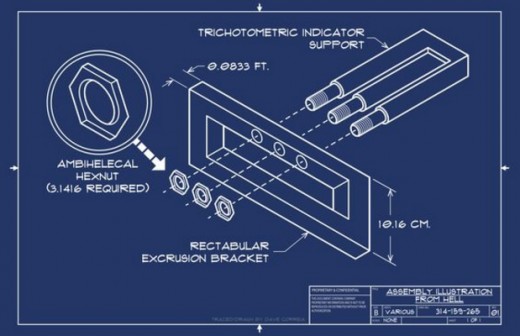The Paper Evolution: A Look at the Digitization of the Written Word

Writing on scratch paper, making paper airplanes, reading your favorite book, sketching for fun, searching the daily newspaper, printing your research paper. Paper is one of the most diversely used resources on the planet. It’s used globally in every country on the earth. It’s been around for over a thousand years as the standard for the written word. And for the first time in all those years we have a strong competitor to paper. Technology. Tablets, phones, and computers have created a new medium for the written word that is overrunning paper in nearly every way. In this article we're going to look at several ways that technology has changed the way that we view the written word, and what that means for paper.

Textbooks
Schools have used textbooks for years. Generally when people think of school or in-depth learning, textbooks come to mind. They are the stereotypical basis of all knowledge in a subject. Even though textbooks are still revered in nearly every school in the United States, textbook sales have declined more and more every year in the last decade. This is due to many textbooks being available in PDF form on the internet though both legal and illegal services. Textbook piracy continues to develop more and more each year. On top of that, many students are able to do the learning that they need to on the internet through Wikipedia and other online services. A recent study showed that more than 60% of med school students say that they prefer using the internet over textbooks and about 20% of medical students say that they rarely, to never use their textbooks. I personally never bought a textbook the last two years of my undergrad. For the purpose of textbooks, we can see that in a near future, much of all student learning will be done online., or at least through digital textbooks.

Libraries
Libraries are arguably, one of the most beneficial government buildings to our society. Students and dropouts alike are welcome there to bask in the source of human knowledge that dwells there: Books. Because of the strong association between libraries and books, how could technology ever replace paper in libraries? I believe that Libraries will always house paper copies of books, however in many of the more progressive libraries around the world we see a shift to modernize many of our books. Many libraries provide eBooks, and you can rent books on through kindle, amazon, and many other online services. Even in many homes, many avid book readers keep a personal library of audio and eBooks. Research has shown that though electronic books provide more convenience, it decreases our reading comprehension and recall. This has not stopped the digitization of books all around the planet though, and even more to come. Though I doubt that we will see paper books disappear completely from society anytime soon, we will continue to see many more options for people to read novels and biographies on electronic devices.

Instructions
About 10 years ago every assembly project was done through written instructions, and many still are today, however we now see more and more people putting instructional directions on the internet. When you have to assemble your home gym, or a put a coffee table together, more than likely you will get a piece of paper that tells you how to assemble your project. More often than not though, we see YouTube videos that also give a more interactive experience to the same project. YouTube, and other online services have completely revolutionized the way that we view instructions. There are perhaps millions of how-to videos on the internet. From designing a jet engine, to making a sandwich, you will find instructional videos on nearly anything. There are even apps out there that are specifically designed to help you with your assembly projects. One of the best ones out there that I’ve seen is called BILT. Apps like BILT provide 3D interactive instructions designed to help you with assembly projects. The neat thing about this is that it makes the whole process of buying and putting together your furniture, bike, shelf, or grill, a whole lot easier. With so much of our world becoming digitized, this was a predictable step in the movement to make life easier.
How do you utilize paper most often?
Writing
Well known authors and poets are known for writing down ideas on small scraps of paper. For instance, Author, JK Rowling, wrote some of her first ideas for Harry Potter on a napkin. Though the typewriter has been around for ages, only in the last decade or two, has the keyboard been able to produce paperless work for authors. For ages ideas and outlines for writers were written on scratch pieces of paper. Now many authors use electronic devices like their phones to create memos for themselves. Many students as well also rely on paperless notetaking, and writing strategies. Speech-to-text makes this even easier. Polls have shown that many poets, and many of the older generation still rely on paper, but many of the rising generation do their writing through the computer. In general shorter pieces such as short stories, poems, essays, etc., are generally going to be written by hand, but we will most likely see the majority of all writings headed towards a computerized state.
As the world continues to develop we will continue to see things change. Paper is not the only thing that will be revolutionized in the coming decades. The world as a whole will see a great shift in seeing common household things becoming much less common. The world will still continue to revolutionize the past to make things more convenient for the general public. One thing seems to be sure though. Though we will more than likely see paper being used less and less, I doubt that we will see it lose a place in society. Paper is a great staple that has held up our world for hundreds of years. So long as there is written language, we will be writing it on paper.








